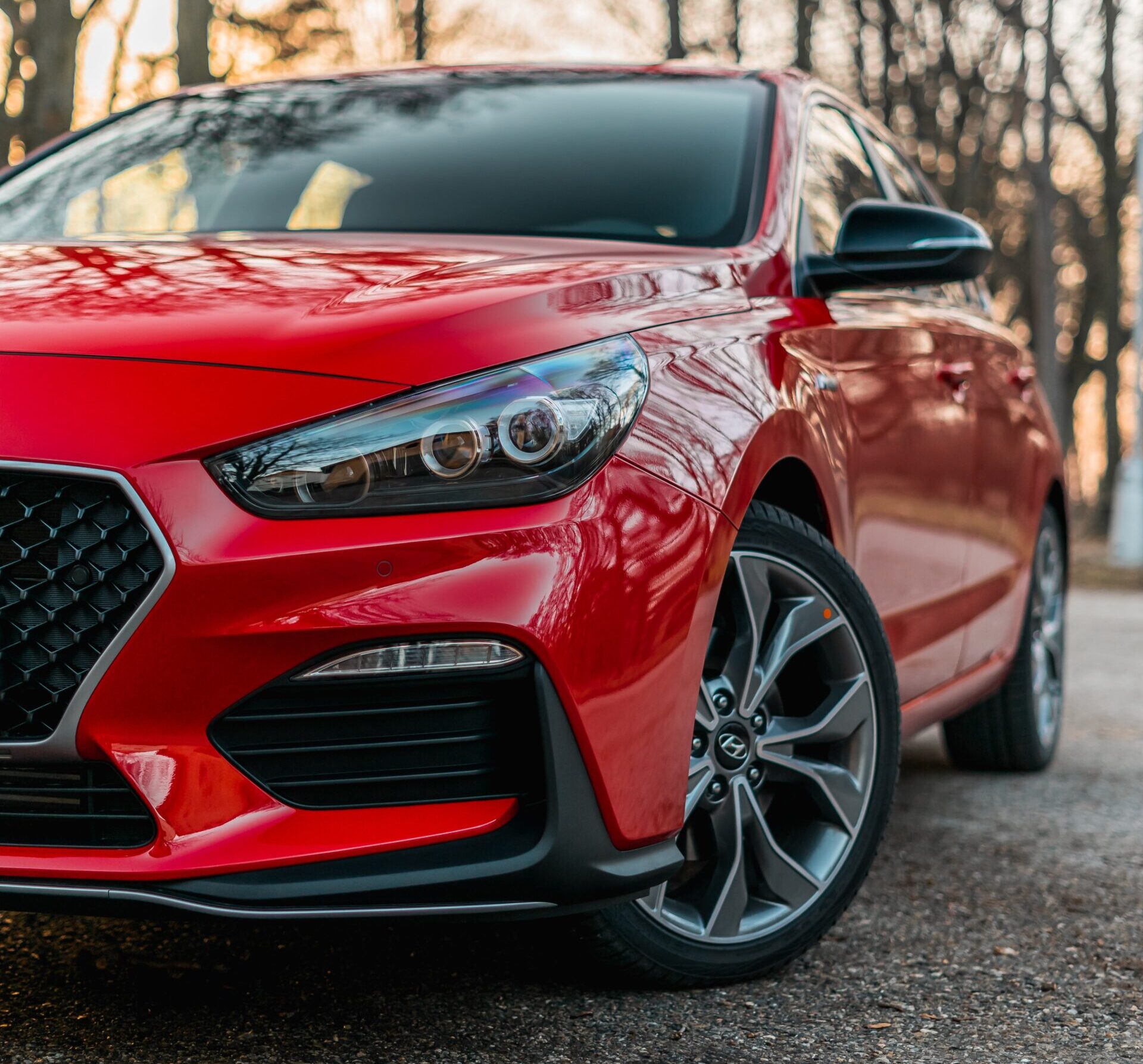Support our educational content for free when you purchase through links on our site. Learn more
Can You Lease a Car and Not Buy It? 7 Essential Insights 🚗 [2025]
Leasing a car can feel like navigating a maze of options, contracts, and fine print. But what if we told you that you can lease a car and walk away without ever buying it? 🤔 In this article, we’ll dive into the ins and outs of car leasing, revealing the surprising freedom it can offer. Did you know that nearly 30% of new cars are leased rather than bought? This trend is on the rise, especially among younger drivers who crave flexibility and the latest models. Whether you’re a first-time leaser or just curious about the process, we’ve got you covered with everything you need to know!
From understanding the lease terms to exploring the pros and cons, we’ll equip you with the knowledge to make an informed decision. So, buckle up as we take you through the exciting world of car leasing!
Key Takeaways
- Leasing allows flexibility: You can drive a new car every few years without the commitment of ownership.
- No obligation to buy: At the end of your lease, you can simply return the car without any purchase requirement.
- Understand the terms: Familiarize yourself with mileage limits and potential fees to avoid surprises.
- Lower monthly payments: Leasing often results in lower payments compared to buying a vehicle outright.
- Warranty coverage: Most leased vehicles are under warranty, reducing maintenance costs.
Ready to explore the best lease deals? Check out our latest offers on Latest Car Lease Deals and find the perfect vehicle for your needs!
Table of Contents
Quick Tips and Facts
Understanding Car Leasing: What You Need to Know
Can You Lease a Car and Not Buy It? The Answer Explained
The Pros and Cons of Leasing a Car Without Buying
How Leasing Differs from Buying: Key Differences
Leasing Terms You Should Know Before Signing
What Happens at the End of Your Lease?
Tips for a Smooth Leasing Experience
Common Myths About Car Leasing Debunked
Real-Life Experiences: Leasing Stories from Consumers
Frequently Asked Questions About Car Leasing
Conclusion
Recommended Links
FAQ
Reference Links
Quick Tips and Facts
If you’re considering a zero down car lease deal 🚗, check out our related article at https://www.carleases.org/zero-down-car-lease-deals/ for more information. Leasing a car can be a great option for those who want to drive a new vehicle every few years without the long-term commitment of buying. Here are some key things to know:
- Lease terms typically range from 2 to 3 years.
- Mileage limits are usually capped at 12,000 to 15,000 miles per year.
- Wear and tear fees may apply if the vehicle is returned in poor condition.
- Excess mileage fees can range from $0.10 to $0.25 per mile.
Leasing vs. Buying
When deciding between leasing and buying, consider the following factors:
- Depreciation: Cars lose value quickly, and leasing means paying for the steepest part of this depreciation.
- Maintenance: Leased vehicles are usually under warranty, which can reduce maintenance costs.
- Flexibility: Leasing allows you to drive a new vehicle every few years without the long-term commitment of buying.
Understanding Car Leasing: What You Need to Know
Car leasing is a type of financing that allows you to use a vehicle for a set period of time in exchange for monthly payments. It’s essential to understand the terms and conditions of a lease before signing. Here are some key things to know:
- Residual value: The estimated value of the vehicle at the end of the lease.
- Buyout amount: The amount you’ll pay to purchase the vehicle at the end of the lease.
- Lease payments: These cover depreciation, not the purchase price.
Types of Leases
There are several types of leases available, including:
- Closed-end lease: The most common type of lease, where the lessee is not responsible for the vehicle’s residual value.
- Open-end lease: The lessee is responsible for the vehicle’s residual value.
Can You Lease a Car and Not Buy It? The Answer Explained
Yes, you can lease a car and not buy it. In fact, most leases are designed to allow you to return the vehicle at the end of the lease term without purchasing it. However, it’s essential to consider the following factors:
- Excess mileage fees: If you exceed the mileage limit, you may be charged a fee.
- Wear and tear fees: If the vehicle is returned in poor condition, you may be charged a fee.
The Pros and Cons of Leasing a Car Without Buying
Leasing a car without buying it can be a great option for those who want to drive a new vehicle every few years without the long-term commitment of buying. Here are some pros and cons to consider:
- Pros:
- Lower monthly payments: Leasing often requires lower monthly payments than buying.
- Latest models: Leasing allows you to drive a new vehicle every few years.
- Warranty coverage: Leased vehicles are usually under warranty, which can reduce maintenance costs.
- Cons:
- No equity: At the end of the lease, you won’t have any equity in the vehicle.
- Mileage limits: Exceeding the mileage limit can result in fees.
- Wear and tear fees: Returning the vehicle in poor condition can result in fees.
How Leasing Differs from Buying: Key Differences
Leasing and buying are two different financing options with distinct advantages and disadvantages. Here are some key differences:
- Ownership: When you buy a vehicle, you own it outright. When you lease, you’re using the vehicle for a set period of time.
- Monthly payments: Leasing often requires lower monthly payments than buying.
- Depreciation: Leasing means paying for the steepest part of the vehicle’s depreciation.
Leasing vs. Buying Calculator
To determine whether leasing or buying is right for you, consider using a lease vs. buy calculator 📊. These tools can help you compare the costs of leasing and buying based on your individual circumstances.
Leasing Terms You Should Know Before Signing
Before signing a lease, it’s essential to understand the terms and conditions. Here are some key terms to know:
- Residual value: The estimated value of the vehicle at the end of the lease.
- Buyout amount: The amount you’ll pay to purchase the vehicle at the end of the lease.
- Lease payments: These cover depreciation, not the purchase price.
Glossary of Leasing Terms
Here’s a glossary of common leasing terms:
| Term | Definition |
|---|---|
| Residual value | The estimated value of the vehicle at the end of the lease. |
| Buyout amount | The amount you’ll pay to purchase the vehicle at the end of the lease. |
| Lease payments | These cover depreciation, not the purchase price. |
What Happens at the End of Your Lease?
At the end of your lease, you’ll have several options:
- Return the vehicle: You can return the vehicle to the lessor without purchasing it.
- Purchase the vehicle: You can purchase the vehicle at the buyout amount.
- Extend the lease: You may be able to extend the lease for an additional period of time.
End-of-Lease Options
Here are some things to consider when deciding what to do at the end of your lease:
- Excess mileage fees: If you’ve exceeded the mileage limit, you may be charged a fee.
- Wear and tear fees: If the vehicle is returned in poor condition, you may be charged a fee.
Tips for a Smooth Leasing Experience
To ensure a smooth leasing experience, follow these tips:
- Read the contract carefully: Make sure you understand the terms and conditions of the lease.
- Ask questions: Don’t be afraid to ask questions if you’re unsure about anything.
- Keep track of mileage: Keep track of your mileage to avoid excess mileage fees.
Leasing Checklist
Here’s a checklist to help you prepare for leasing:
- Check your credit score: A good credit score can help you qualify for better lease terms.
- Research the vehicle: Research the vehicle you’re interested in leasing to ensure it’s a good fit for your needs.
- Compare lease offers: Compare lease offers from different lessors to find the best deal.
Common Myths About Car Leasing Debunked
There are several common myths about car leasing that are simply not true. Here are a few:
- Myth: Leasing is only for businesses. Reality: Anyone can lease a vehicle, regardless of whether they’re a business or individual.
- Myth: Leasing is more expensive than buying. Reality: Leasing can be less expensive than buying, especially if you’re looking for a short-term financing option.
Leasing Myths vs. Reality
Here’s a table comparing common leasing myths with reality:
| Myth | Reality |
|---|---|
| Leasing is only for businesses | Anyone can lease a vehicle, regardless of whether they’re a business or individual. |
| Leasing is more expensive than buying | Leasing can be less expensive than buying, especially if you’re looking for a short-term financing option. |
Real-Life Experiences: Leasing Stories from Consumers
We’ve spoken to several consumers who have leased vehicles, and here are some of their stories:
- Story 1: One consumer leased a vehicle for 3 years and loved the experience. They were able to drive a new vehicle every few years without the long-term commitment of buying.
- Story 2: Another consumer had a negative experience with leasing. They exceeded the mileage limit and were charged a fee at the end of the lease.
Leasing Success Stories
Here are some success stories from consumers who have leased vehicles:
- Success Story 1: A consumer leased a vehicle for 2 years and was able to drive a new vehicle every few years without the long-term commitment of buying.
- Success Story 2: Another consumer leased a vehicle for 3 years and loved the experience. They were able to drive a new vehicle every few years without the long-term commitment of buying.
Frequently Asked Questions About Car Leasing
Here are some frequently asked questions about car leasing:
- Q: What is car leasing? A: Car leasing is a type of financing that allows you to use a vehicle for a set period of time in exchange for monthly payments.
- Q: How does car leasing work? A: Car leasing works by allowing you to use a vehicle for a set period of time in exchange for monthly payments. At the end of the lease, you can return the vehicle, purchase it, or extend the lease.
Leasing FAQs
Here are some additional FAQs about car leasing:
| Question | Answer |
|---|---|
| What is car leasing? | Car leasing is a type of financing that allows you to use a vehicle for a set period of time in exchange for monthly payments. |
| How does car leasing work? | Car leasing works by allowing you to use a vehicle for a set period of time in exchange for monthly payments. At the end of the lease, you can return the vehicle, purchase it, or extend the lease. |
Conclusion

In summary, leasing a car can be a fantastic option for those who enjoy driving new vehicles every few years without the long-term commitment of ownership. Leasing allows for lower monthly payments, warranty coverage, and the flexibility to switch cars frequently. However, it also comes with potential downsides, such as no equity in the vehicle, mileage restrictions, and possible fees for wear and tear.
Positives:
- Lower monthly payments 💰
- Access to the latest models
- Warranty coverage reduces maintenance costs
Negatives:
- No ownership equity
- Mileage limits can incur fees
- Potential wear and tear charges
If you value driving a new car without the hassle of ownership, leasing is a solid choice. Just be sure to read the fine print and understand the terms of your lease agreement. 🚗✨
Recommended Links
- 👉 Shop Latest Car Lease Deals: Latest Car Lease Deals
- Explore Car Lease Basics: Car Lease Basics
- Check Electric Vehicle Leases: Electric Vehicle Leases
- Understand Credit Score and Car Leasing: Credit Score and Car Leasing
- Learn About Auto Financing Options: Auto Financing Options
FAQ

What does it mean to lease a car instead of buying it?
Leasing a car means you are essentially renting the vehicle for a specified period, usually 2-3 years, while buying means you are purchasing the vehicle outright or financing it with a loan. When you lease, you make monthly payments based on the car’s depreciation, while buying involves paying the total purchase price or financing it.
Read more about “What is 0% Leasing? 7 Essential Insights You Need to Know! 🚗 …”
What are the benefits of leasing a car versus buying?
Leasing offers several benefits, including:
- Lower monthly payments: Leasing typically costs less per month than financing a purchase.
- Newer models: You can drive a new car every few years without worrying about long-term depreciation.
- Warranty coverage: Most leased vehicles are under warranty, which can save on maintenance costs.
Read more about “How Much is a Lease on a Tesla? 7 Key Factors to Consider! 🚗 …”
How does a car lease work?
A car lease involves signing a contract that allows you to use a vehicle for a specified period in exchange for monthly payments. At the end of the lease, you can either return the car, purchase it at a predetermined buyout price, or extend the lease.
Read more about “What Credit Score Do You Need to Lease a Car? 🚗 7 Key Insights …”
What happens at the end of a car lease?
At the end of a lease, you typically have three options:
- Return the vehicle: Hand it back to the dealership without any further obligations.
- Buy the vehicle: Purchase it for the agreed-upon buyout price.
- Extend the lease: If permitted, you can extend the lease for a longer period.
Read more about “What is the Lowest Term for a Car Lease? 🚗 7 Essential Insights for 2025”
Can I buy the car at the end of the lease?
Yes, most leases include a buyout option that allows you to purchase the vehicle at the end of the lease term for a predetermined price, known as the residual value.
Read more about “Mastering Tesla Lease Mileage Limits: 7 Essential Insights 🚗 …”
Are there mileage restrictions when leasing a car?
Yes, most leases come with mileage restrictions, typically ranging from 10,000 to 15,000 miles per year. Exceeding this limit can result in additional fees.
Read more about “Unbeatable Best Car Lease Deals with No Money Down: 10 Options for 2025 🚗”
What are the penalties for exceeding the mileage limit on a car lease?
Penalties for exceeding the mileage limit can range from $0.10 to $0.25 per mile, depending on the lease agreement. These fees can add up quickly, so it’s essential to monitor your mileage.
Read more about “Unbeatable Used Tesla Lease Deals: Top 10 Picks for 2025 🚗”
Is leasing a car a good option for me?
Leasing can be a good option if you prefer driving new cars, want lower monthly payments, and don’t mind not owning the vehicle. However, if you drive a lot or want to build equity in a vehicle, buying may be a better choice.
Read more about “Is It a Good Idea to Lease a Car? 10 Key Insights for 2025 🚗”
How do I find the best car lease deals?
To find the best car lease deals, research online, compare offers from different dealerships, and check for promotions. Websites like Edmunds and TrueCar can provide valuable insights into current lease offers.
Read more about “Unlock the Secrets of Car Leasing with No Down Payment Required! 🚗✨”

